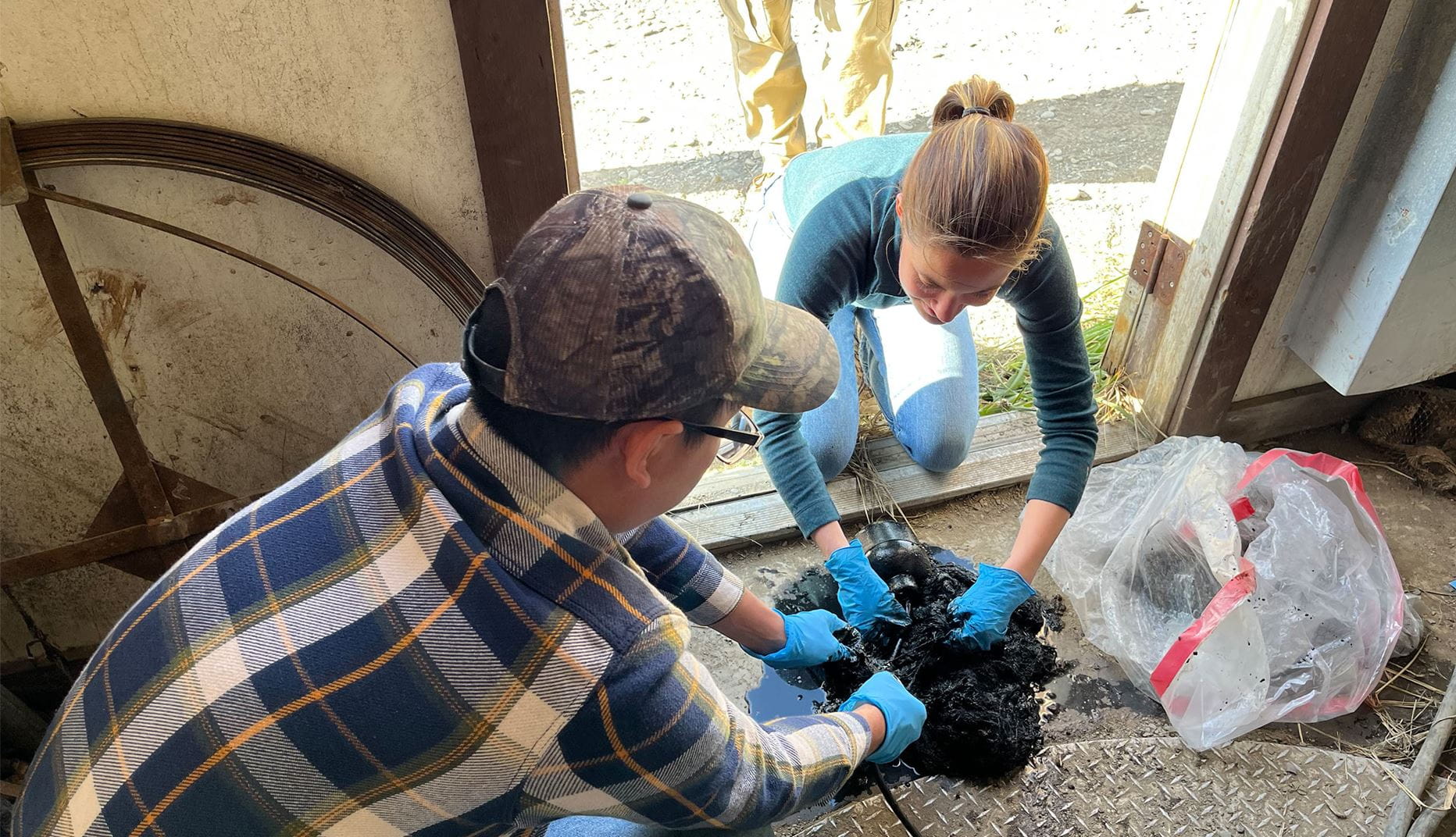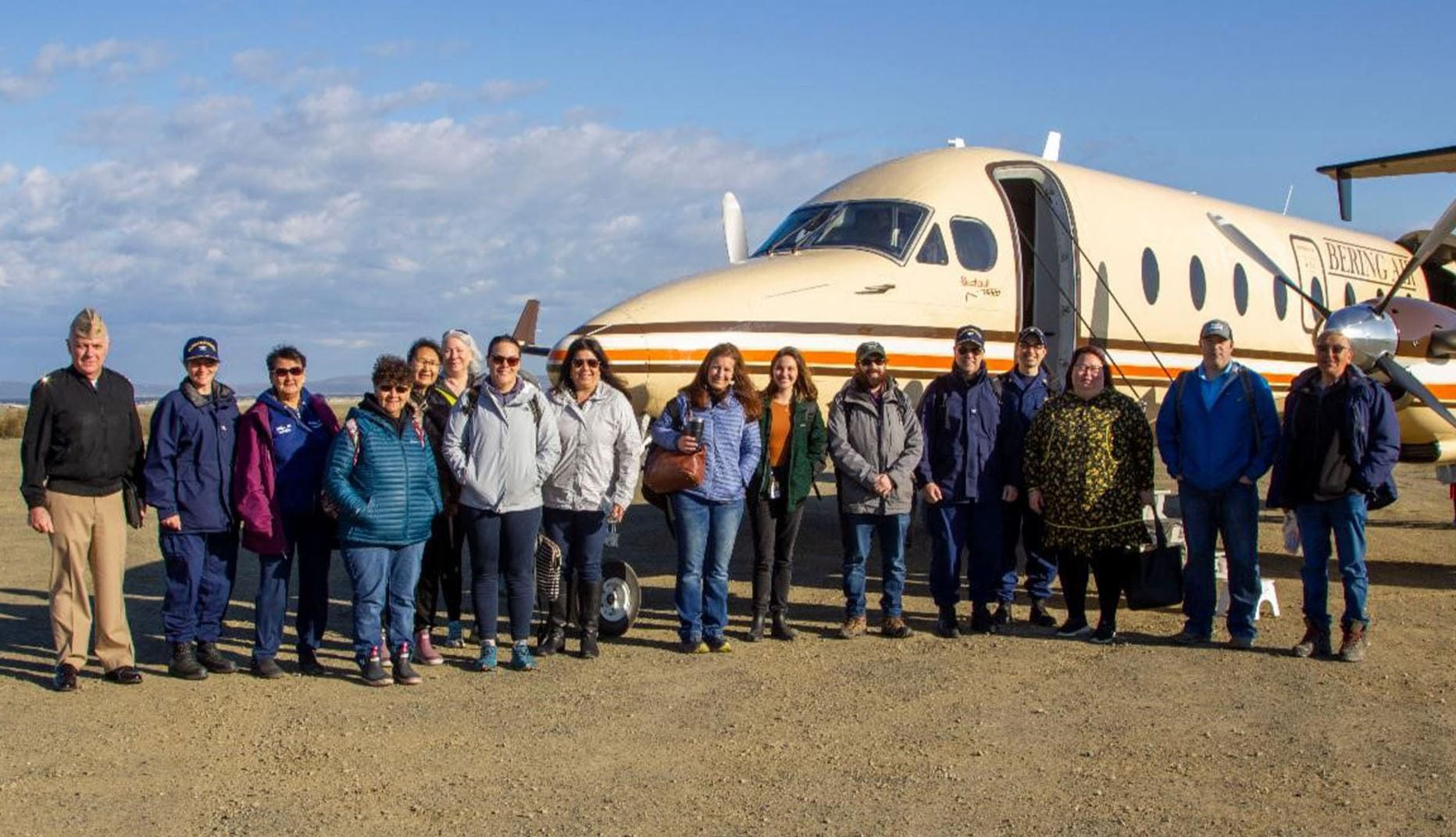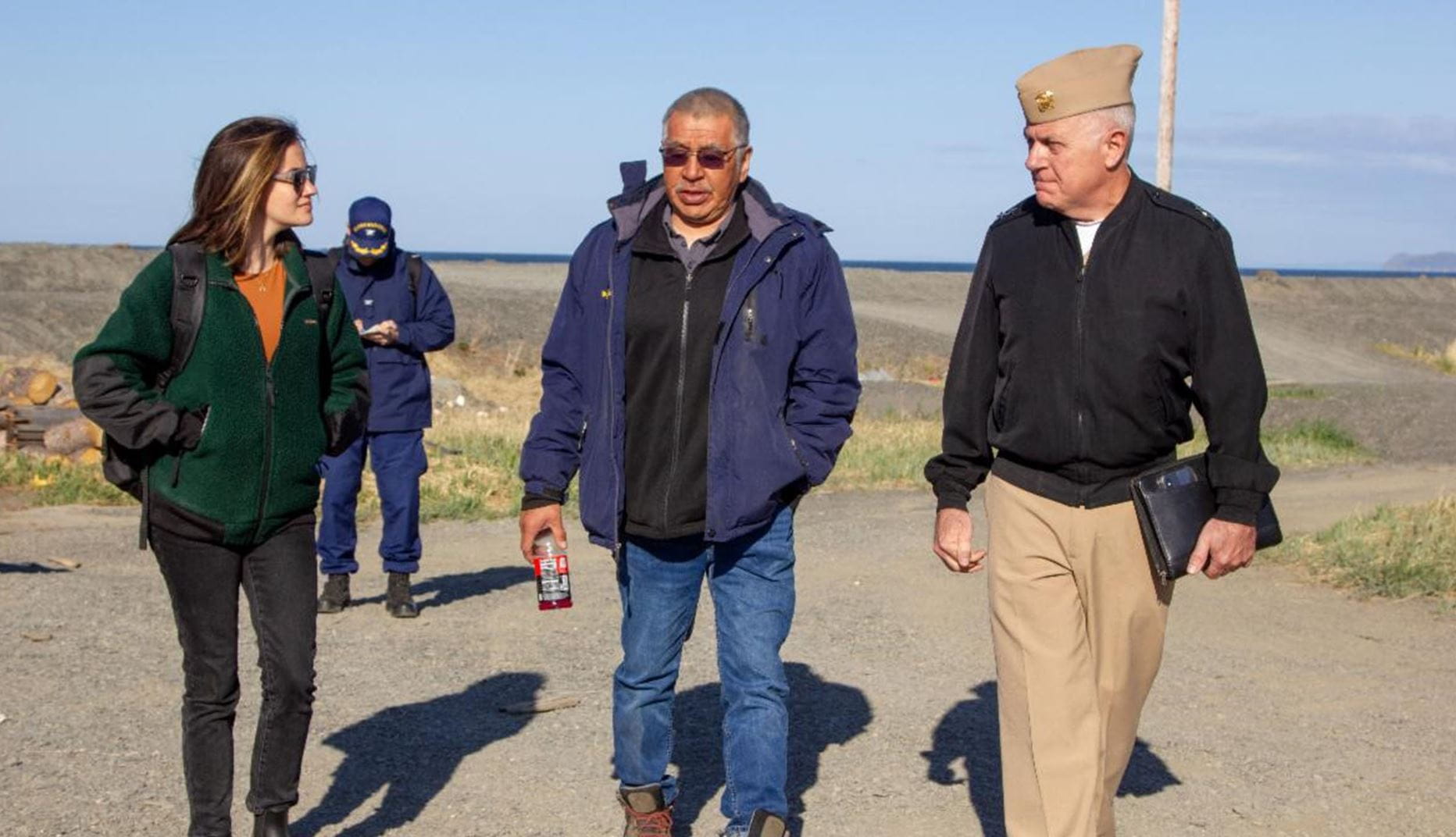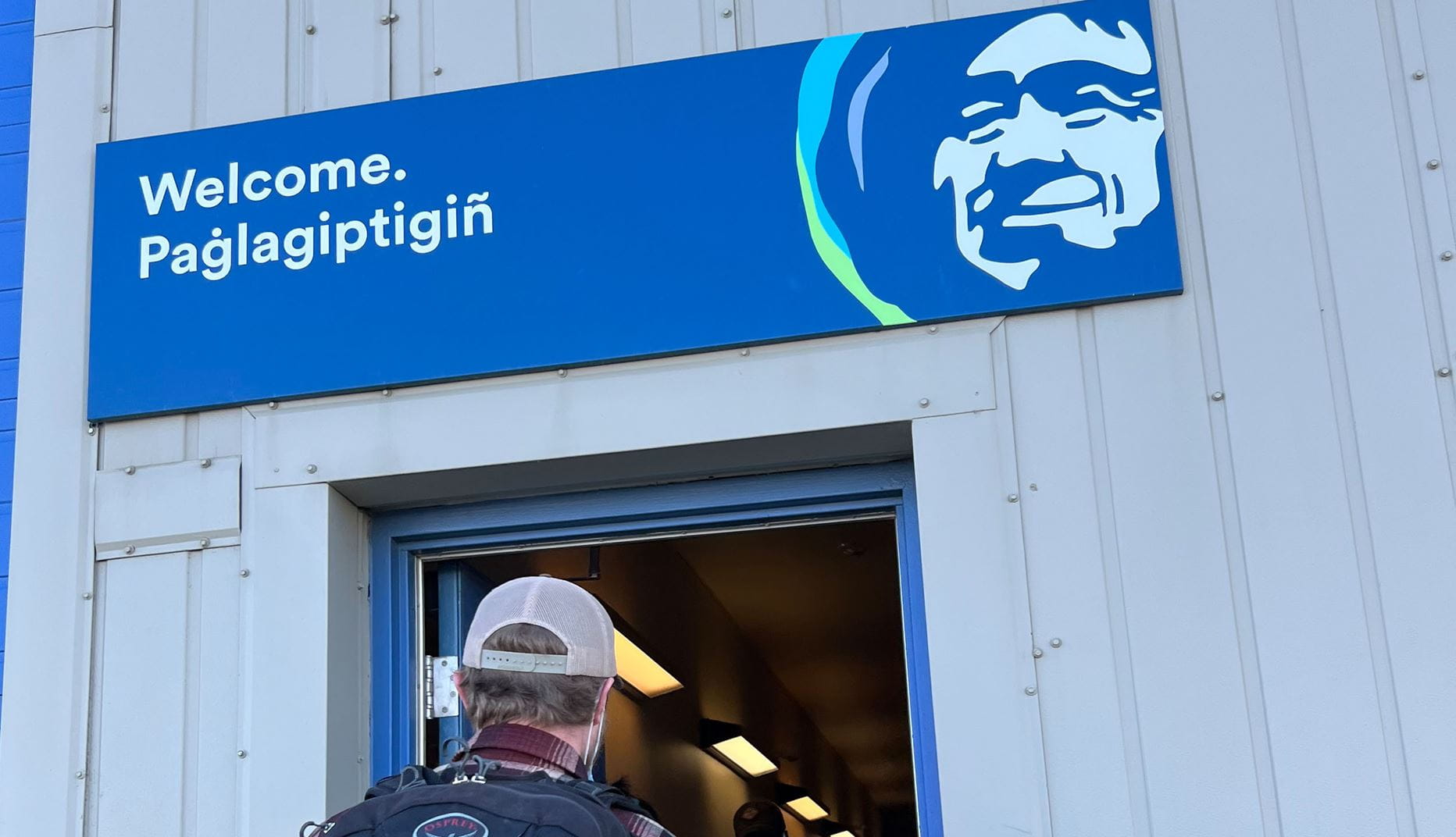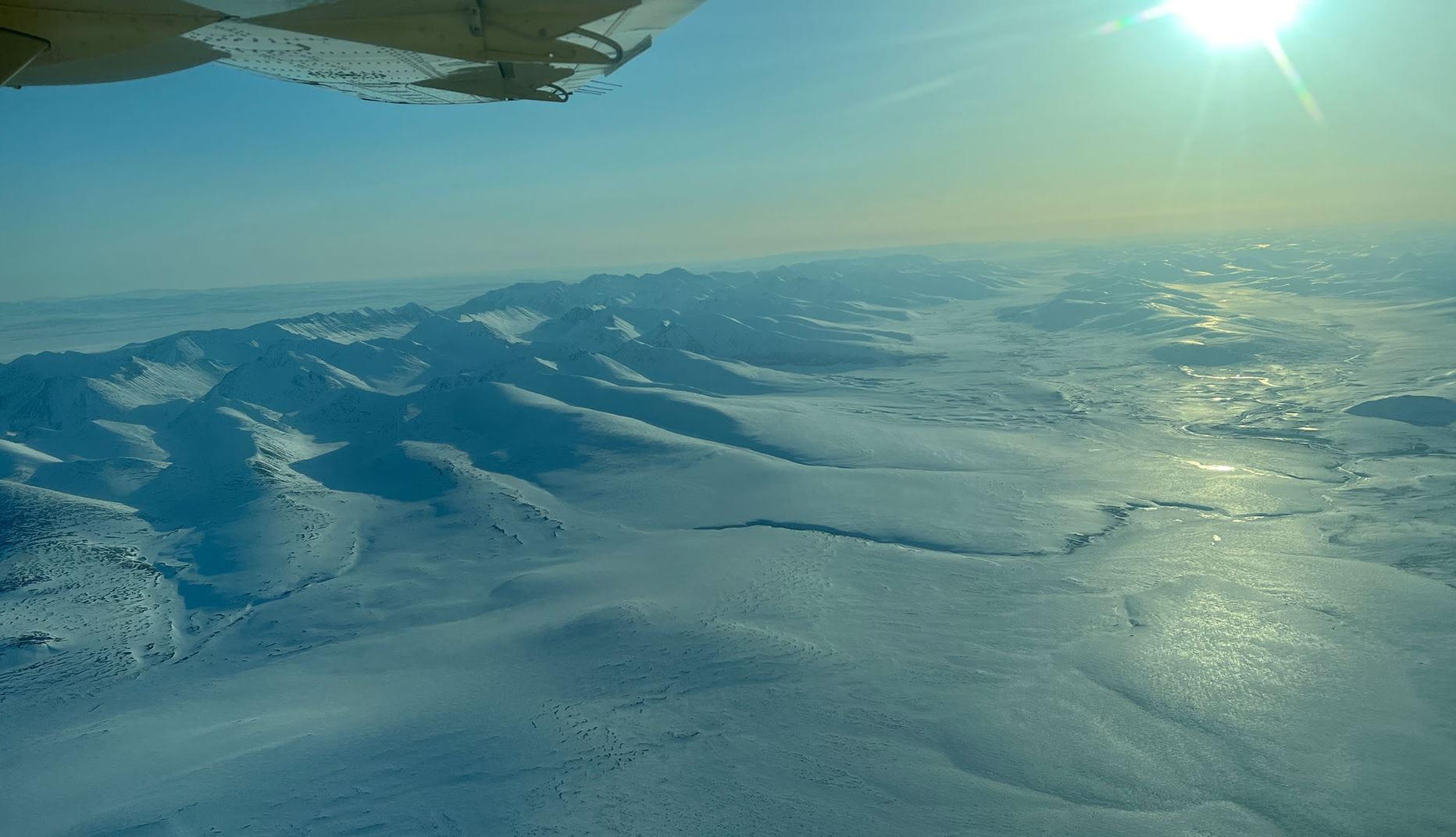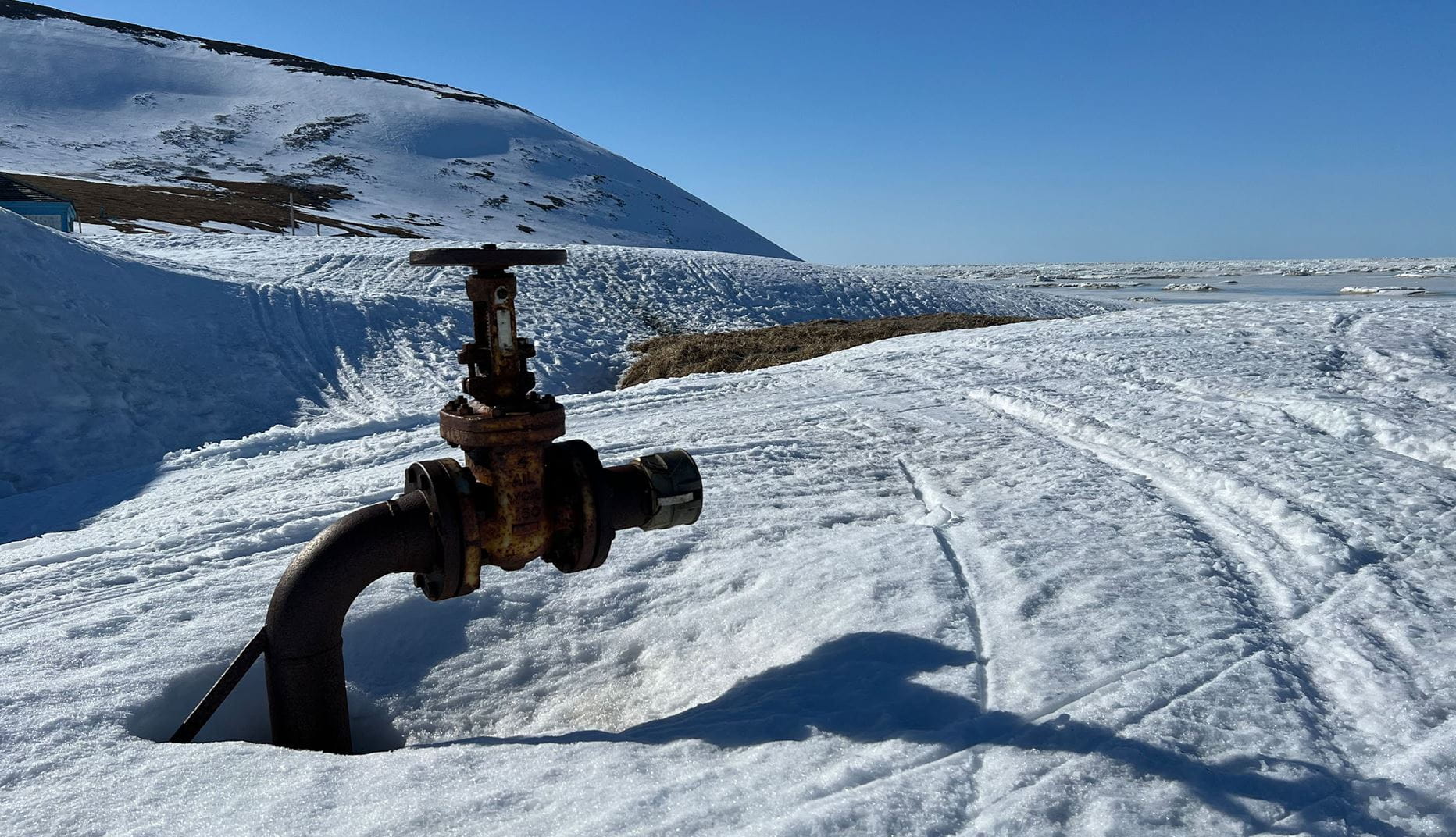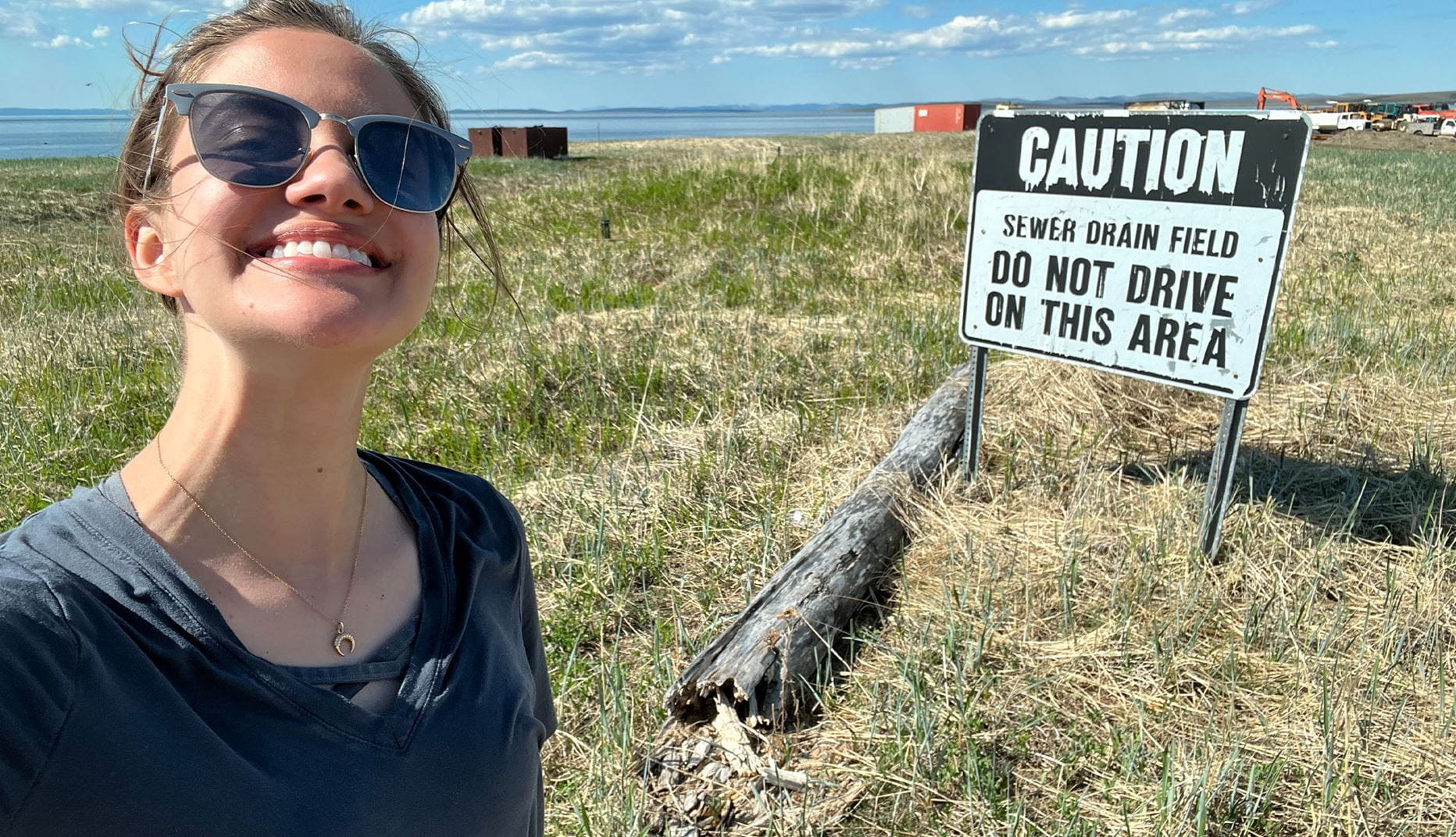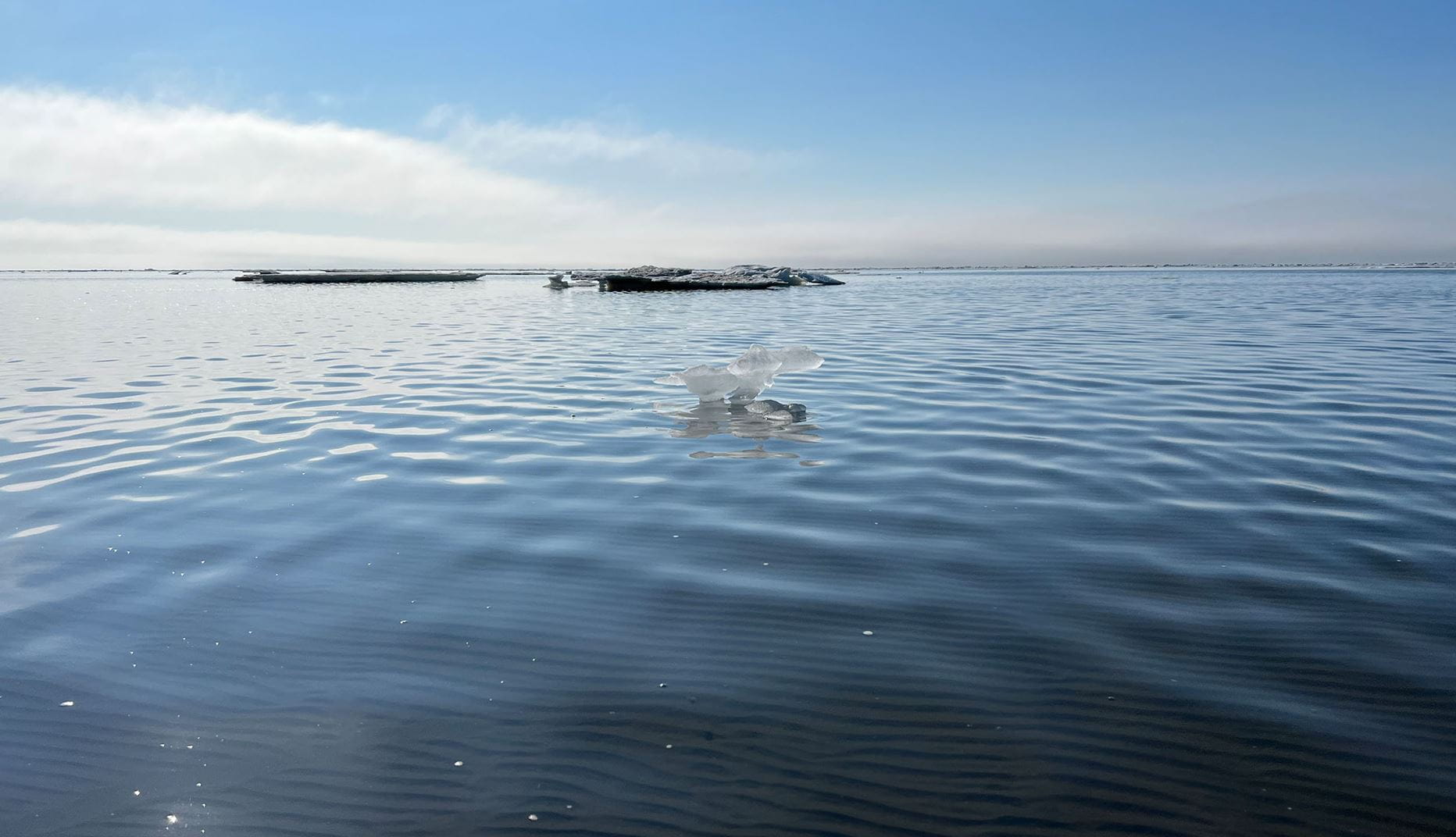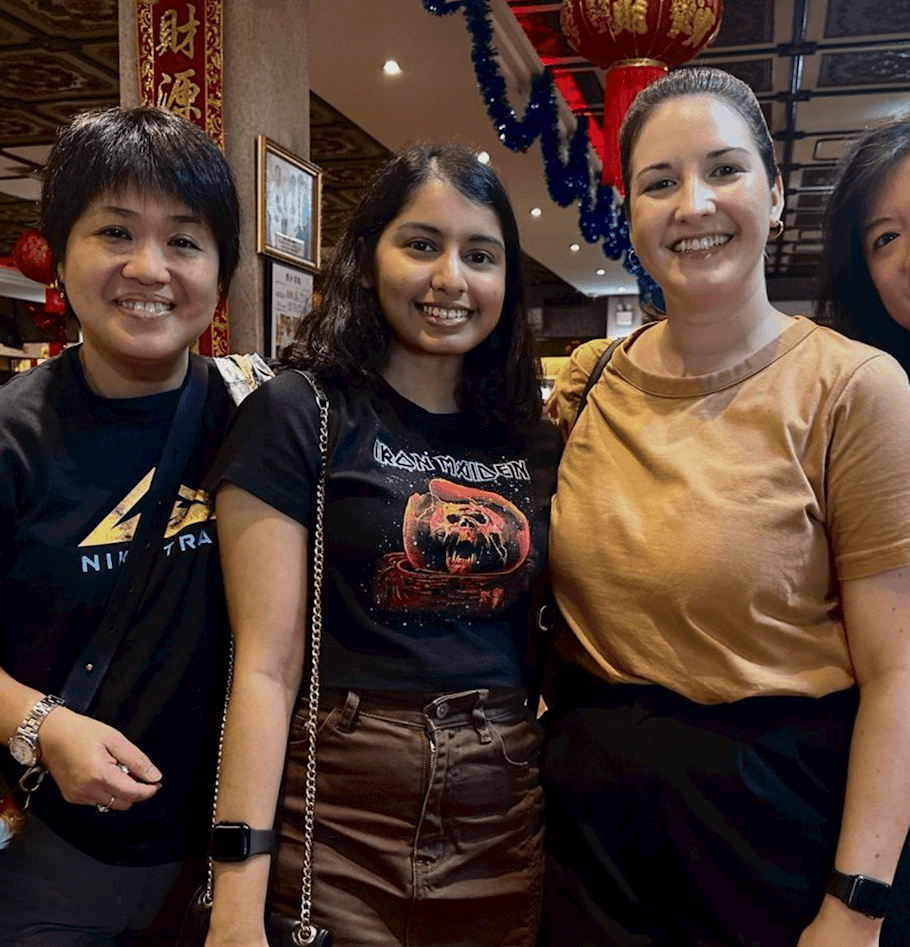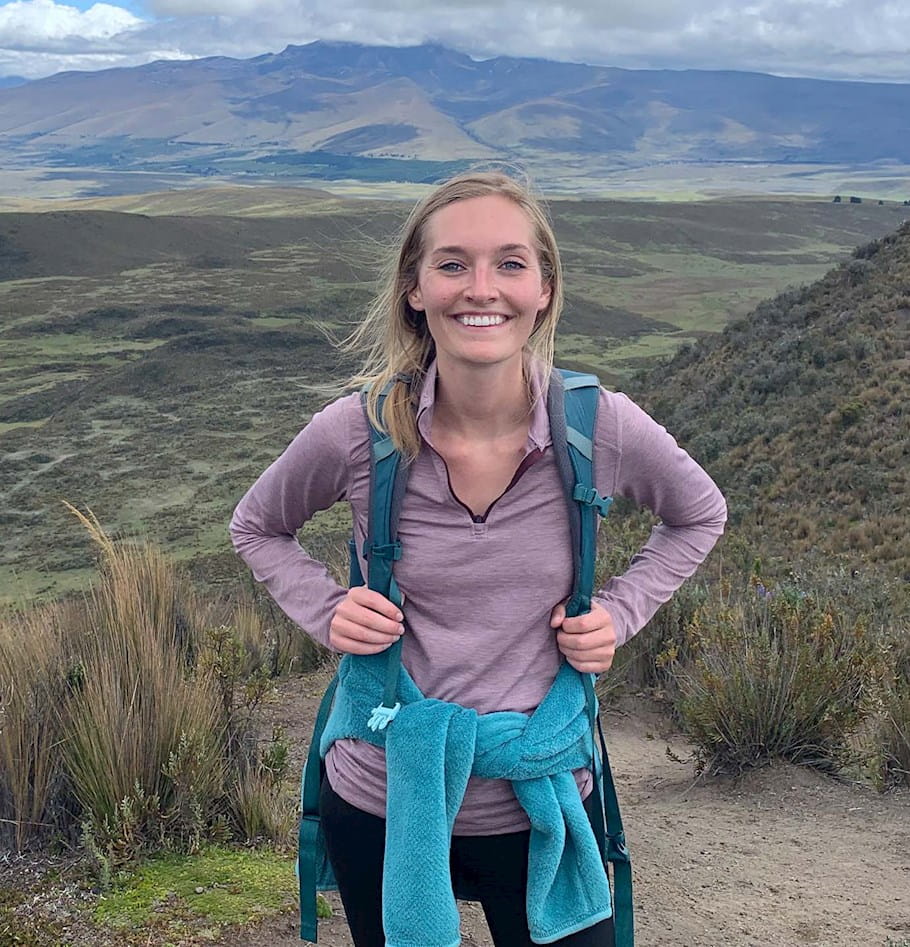Breaking Down the Water Crisis in Indigenous Communities: A Fischer Fellow's Perspective
We spoke with Theresa to discuss her Fischer Fellowship experience in Alaska and the impact she drove during her time there.
What made you want to get into water engineering?
I have held a long-term passion for the environment and the magic of chemistry—which led me to pursue a major in Chemical Engineering at Vanderbilt University.
While in school, I partnered with Dr. Jessica Oster and Dr. Tiffiny Tung to complete lab research and field work in Tennessee and Peru. Working with these women fostered my passion for immersive education and understanding how water is interwoven in modeling climate and human behavior.
My undergrad background in water research and field work drove me to center my career goals on ensuring communities have safe, affordable, equitable access to utilities. Everyone should have reliable access to the resources we need to survive. My team and client partners share this intent and the determination to make it a reality.
Why did you want to participate in the Fischer Fellowship program? What were you hoping to gain from this experience?
When I was writing the three-year letter that all West Monroe employees are encouraged to complete, my two mentors here, Tricia Anklan and Nick Kennedy, suggested I apply to the program to build my career equity journey.
They were prior Fischer Fellows who had life-changing experiences and I thought it would be an impactful move in my career and personal life, recognizing a unique opportunity to explore the nexus of my professional skillset and personal passions to expanding water quality and access.
”
Why did you choose Norton Sound Health to complete your Fellowship? Why did you feel it was essential to partner with them then?
I originally found some of the great work being done by the Tribal Water Center and reached out to Alaska Native Tribal Health Consortium (ANTHC), which connected my skillset with a developing program at Norton Sound Health Corporation (NSHC). NSHC is a partner in the Bering Strait region’s Community Utility Assistance Program (CUAP) with a mission of empowering “elected leaders and community staff in the management and development of community utility systems for improving affordability and sanitation services with the communities they serve” and a vision that “by 2030, all residents in the Bering Strait region will have access to safe and affordable water and wastewater disposal systems.”
A few months before I began the Fischer Fellowship application process, the Helmsley Charitable Trust awarded the region a grant of $20 million, which catalyzed the CUAP’s business formation.
After reviewing their business plan with the CUAP/Sanitation Administrator and Sanitation Engineer, we designed an exciting project plan that supported several CUAP development goals.
I chose this partnership with the CUAP because of:
-
The tangible way they root their shared goal of expanding water/sanitation infrastructure in promoting self-governance and sustainability
-
Their unique, collaborative program design
-
My deep resonance with their vision and values
What should people know about the water crisis in underserved Indigenous communities? Why is it vital for them to know?
According to the CUAP Business plan, the Bering Strait region faces a $261 million sanitation need, with five communities in the region remaining “completely unconnected to running water and sewer.” The Indian Health Service (IHS) reported a total need for unserved homes across the contiguous United States at $137 million, whereas the need for unserved communities in Alaska totals $1.5 billion.
In other words, about 91% of the country’s unmet sanitation need is concentrated in one state and disproportionately impacts Alaska Native communities. The region’s “tribes, tribal organizations, and Native corporations remain poised to advance self-determination” and continue to lead efforts to resolve this infrastructure gap.
The impacts of a lack of sanitation and clean water infrastructure, in combination with a shortage of housing in the region’s communities, remain an ongoing public health crisis that is too often overlooked by those not directly impacted. We all deserve clean drinking water—which is most notably true for communities who have stewarded the lands for millennia.
”
The projects you worked on during your Fellowship impacted the communities you worked with. Which projects did you see the results of your actions immediately, and which ones were you able not to see any progress right away but were still impactful?
I worked on seven different project areas ranging from emergency response planning to supporting water system engineering assessments.
I collaborated with the sanitation team, remote maintenance workers, water operators, and the State Department of Environmental Conservation to create a boil water notice remediation plan. During my Fellowship, eight of the communities in the region experienced a boil water notice, with five returning to drinking water compliance by January 2023. I’m grateful to have been part of the planning process and commend the community water operators and remote maintenance workers for the restoration of water treatment and operations in their communities.
During my Fellowship, I also developed and published a series of dashboards tracking management best practices and regulatory compliance to empower community-led efforts to maximize funding eligibility. West Monroe has since re-engaged with NSHC through a pro-bono project for technical support to develop dashboard management skillsets across a broader audience of CUAP resources.
Describe one of your favorite memories from your Fellowship and explain why it’s your favorite.
Wastewater lift stations pump sewage from lower to higher elevation. This ‘float’ rises and lowers depending on the water level to automatically control switch operation, but it was tangled and rendered pump operations ineffective. While working on an engineering assessment in Unalakleet, Alaska, I helped manually unclog the hair, waste, and debris that prevented it from operating effectively.
I appreciate this experience because I love any chance to support my work tangibly and am never afraid to (literally) get my hands dirty (while espousing the value of Personal Protective Equipment, of course!).
”
You lived in Nome, Alaska for six months. Any personal memories to share?
Too many to count. I made some dear friends in Nome and had many opportunities to hike, float the Nome River, visit natural hot springs, and engage in subsistence activities (e.g., berry picking, joining hunting trips, learning how to pull and clean salmon from nets).
One moment that stands out was receiving a call that the Northern Lights were out after I had driven home from a bonfire. Teeth brushed and fully suited up in a flannel pajama set, I drove back to the fire to see the Aurora for the first time with friends. It was a breathtaking experience.
Who were some of the people and connections you made during your Fellowship. What lessons did you learn from those around you?
Through the CUAP projects, I had the incredible fortune of working with:
- Tribal and City leadership across the region
- NSHC Sanitation Department & Office of Environmental Health
- Kawerak Tribal Affairs
- Engineering Ministries International
- MK Consulting LLC
- Dave Murphy & Dave Konen
- State of Alaska Departments of Environmental Conservation and Homeland Security
Personally, and professionally, I built relationships with people who helped me explore and verbalize my core values of purpose-driven work, community-oriented care, and an active/outdoor lifestyle.
How has your Fischer Fellowship experience helped you when working with clients?
I learned three lessons about how this experience will help me support my clients:
- Deepening my understanding of the value of active listening and respecting a person’s many perspectives and experiences
- Being a long-term project team member repositioned how I relate to my clients and celebrate our shared objectives
- Delivering across a diverse body of work with a mix of field and strategic engagement sharpened my skillset. In addition, it increased my exposure to new regulatory environments, climate conditions, and infrastructure needs.
Why is it essential that employers like WM provide opportunities like the Fischer Fellowship to employees?
West Monroe’s Fischer Fellowship Global Service program is unparalleled in its tangible support of our commitment to corporate social responsibility. Putting our people first and connecting their professional skillsets with worldwide nonprofit organizations helps us create better consultants and humans who ask themselves, “If I could do anything in the world, what would it be?”…and then go out there and do it.
